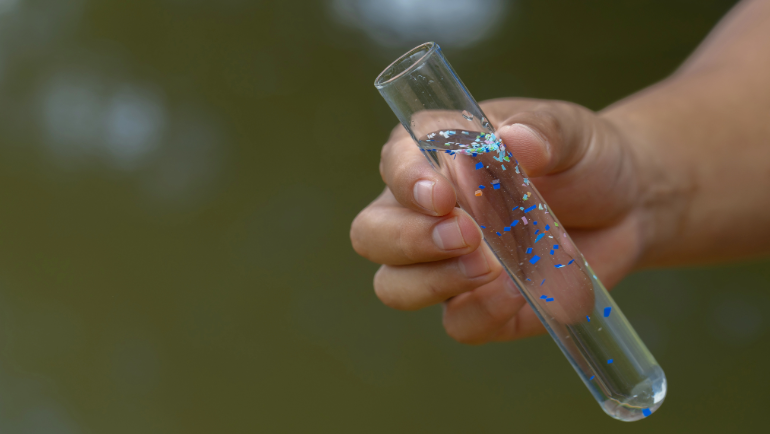Wayne State University awarded grant to combat microplastics in the Great Lakes

DETROIT — Wayne State University researchers recently received a grant from the Great Lakes Protection Fund to team with the Huron River Watershed Council, the Cleveland Water Alliance, Buffalo Niagara Waterkeeper, Resource Recycling Systems, University of Delaware, United States Geological Survey and Ohio State University to help communities combat microplastics in water sources.

The project, “Mobilizing a Great Lakes Microplastic Action Network,” is led by Yongli Wager, Ph.D., associate professor of civil and environmental engineering and director of the Sustainable Water-Environment-Energy Technologies Lab in Wayne State’s College of Engineering. The project’s goal is to create a Great Lakes-focused microplastic action network that will use proven reduction strategies and new analytic tools — including a new open-source analytic engine, or “library” — for identifying environmental microplastics. The library will empower communities with the ability to identify local pollution sources for the first time, offering new opportunities for microplastic pollution mitigation at a local level.
“We are going to work with a number of community leaders and each will have their own network of partners,” said Wager. “Together we will collect samples from the Great Lakes and local rivers and analyze them for plastics at both the macro and micro scale. With the resulting data, we will see things like the material type, color, texture, size and shape of the plastics. That way, we can tell where it comes from and where the sources are such as plastic bags, plastic packaging, plastic fibers in washing water and so forth.”
This four-year, $1,190,000 award from the Great Lakes Protection Fund will analyze environmental microplastics to infer the likely source, fate, and transport of microplastic samples. Pilot communities will be able to target source-specific strategies and learn from their actions. Using data generated from the new library, communities will take actions to reduce microplastics in their local context.
“We worked very closely with community partners to build educational materials on microplastics,” said Wager. “We want them to reach out to residents, organizations and businesses so they understand the impact plastic waste can have on the environment and human health. We hope this will promote positive change to reduce plastic in the environment. With the resulting data, we can better create specific materials for local communities. They will be able to see what type of microplastics are affecting their specific community and then determine how to best address that.”
Potential responses by communities could include implementing improved practices in wastewater filtration to address point sources, targeting single-use plastics through public awareness campaigns, supporting restaurant associations in identifying alternatives to plastic containers, implementing new washing machine filters to reduce microfibers in washing water, and targeting manufacturers releasing harmful materials in the water supply chain.
“This important research effort will provide critical resources and engage with communities to improve water quality,” said Ezemenari M. Obasi, Ph.D., vice president for research & innovation at Wayne State University. “I look forward to the impact of this important work by Dr. Wager’s team on the Great Lakes and beyond.”
# # #
About Wayne State University
Wayne State University is one of the nation’s pre-eminent public research universities in an urban setting. Through its multidisciplinary approach to research and education, and its ongoing collaboration with government, industry and other institutions, the university seeks to enhance economic growth and improve the quality of life in the city of Detroit, state of Michigan and throughout the world. For more information about research at Wayne State University, visit research.wayne.edu.
Wayne State University’s research efforts are dedicated to a prosperity agenda that betters the lives of our students, supports our faculty in pushing the boundaries of knowledge and innovation further, and strengthens the bonds that interconnect Wayne State and our community. To learn more about Wayne State University’s prosperity agenda, visit president.wayne.edu/prosperity-agenda.
Contact info
Julie O'Connor
Director, Research Communications
Phone: 313-577-8845
Email: julie.oconnor@wayne.edu